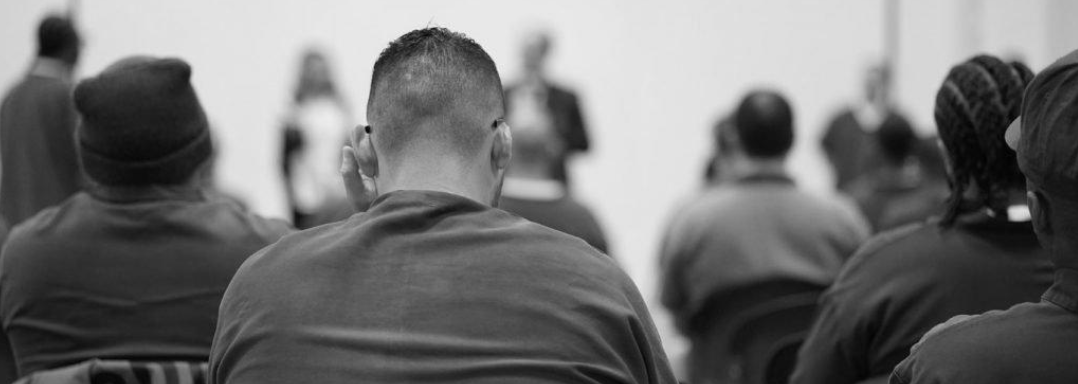We sentence offenders to jail every day. Norway, Colorado, or Auckland — their stories are the same. Did you ever wonder what they are?
Back in 2016, I spent a day on Bastøy prison island in Norway. Bastøy is a low-security, male-only prison about 75 km southeast of Oslo. The 2.6 km2 island hosts 115 inmates, making it the largest low-security prison in Norway. Inmates are housed in wooden cottages and work on the prison farm. During their free time, inmates have access to horseback riding, fishing, tennis, and cross-country skiing. Arne Kvernvik-Nilsen, governor of the prison, leads a staff of 69 prison employees. Of this staff, only five employees remain on the island overnight. The prison is about a one-hour commuting distance from Oslo.
It’s an ‘open’ penitentiary where the prisoners, some of whom are kept there for serious crimes like murder or rape, live a life in that ‘jail’ as normal as possible. While the critics brand that as 'cushy', the Island folk have by far the lowest reoffending rate in Europe, reported at 16%, compared to the European average of around 70%. The governor, a clinical phycologist by profession, described their vision this way:
"You don't change people by power," he says. "For the victim, the offender is in prison. That is justice. I'm not stupid. I'm a realist. Here I give prisoners respect; this way we teach them to respect others. But we are watching them all the time. It is important that when they are released they are less likely to commit more crimes. That is justice for society."
In another jail at Canyon City, Colorado I’ve observed the work of Breakthrough – an amazing organisation working in and out of Colorado prisons. Stacey Putka, their Executive Director, who witnessed her father’s remarkable journey of recovery and redemption after overcoming addiction, has leveraged her expertise to spearhead initiatives aimed at lowering recidivism rates and reshaping society’s response to those impacted by the criminal legal system.
The inmate’s life stories were similar.
In Colorado on the gym floor, between two groups (prisoners and volunteers) was a blue line. The folk were asked to step to the blue line when a statement, applied to them and step back when it did not. No talking. Not a sound. Just rocking forward and back to slowly reveal each life.
Stacey says, step to the line if:
You dropped out of school.
You have a university degree.
Your mum was a teenager when she had you.
You grew up in a home with both biological parents.
You have had cruel things said to you. (Everyone present stood up to the blue line)
You have struggled with depression.
You regularly heard gunshots in your neighbourhood growing up.
You saw adults use drugs or adults gave you drugs when you were a child.
You have driven a car while intoxicated. (Everyone present)
The following hits the hardest for me, as I noticed how many men stood still at the line when Stacey intensifies the questions:
You were under 18 when beaten up or abused. Under 16? Under 14? Under 12? Under 10?
You were under 18 when first arrested. Under 16? Under 14? Under 12? Under 10?
You have spent time in prison. More than 1 year of your life? More than 2? More than 3? More than 4? More than 5? More than 6?
What becomes clear is how many of these men were sent into life’s ring young, blindfolded, without gloves, and with both hands tied, and then were punished for kicking out at a system they don’t fit into let alone understand.
I try also to be mindful of the very real pain they have caused in the lives of their victims and all who love them. To dismiss or ignore this is to do no one any favours. Empathy is not endorsement. However, I remain committed to the truth that no one’s value can be calculated by just the sum total of their worst moments. Self-reflection might convince you of that harsh truth.
So I looked at these young men as they stepped up to and back from the thin blue line and thought I will not pity you because, like me and like you, they are complex human beings. To “feel sorry” for them based solely on what little I knew of their stories is unfair. So no, I did not pity the men I met but I hope I respected each one and heard their story.
Equal treatment is often confused with sameness. Equality does not mean sameness, rather, equality requires respect across differences. And that’s the secret of Bastoy and Breakthrough’s work with inmates and the success of the brave, brilliant vision of Te Ao Marama. A vision that asks judges to recognise individuality, hear each and every life story and by patient, tireless mahi, make meaningful decisions for those using our courts. For those with the ears to hear, the message is simple.
Kia kaha. ‘Onwards’.

